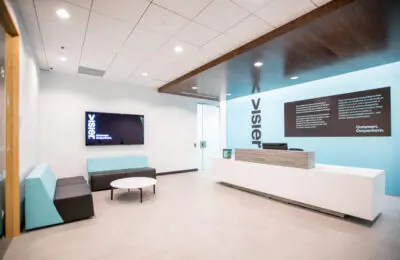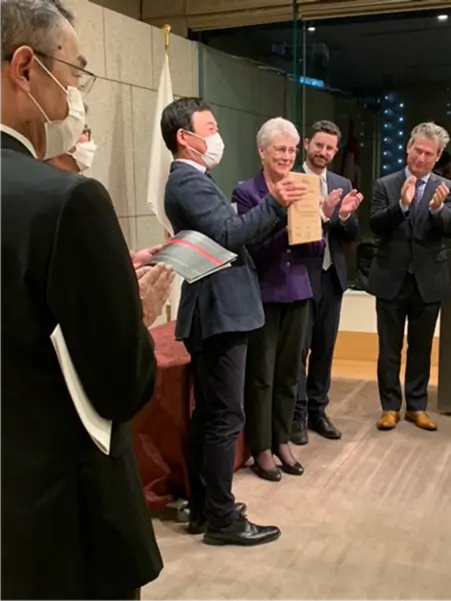
Transportation sector Adapted
British Columbia’s transportation sector was hustling and bustling before the pandemic, as our province is situated at the commercial crossroads of Asia-Pacific and North America. COVID-19 set off a domino-effect of challenges from personal health to the viability of industry. The resilience and adaptability of British Columbians have been tested as we adapt to the new normal. Companies and industry associations quickly jumped on their feet to create new opportunities to face this behemoth challenge. While still reeling from the impact, the transportation industry has found flexibility and resilience contributing to sustainable economic recovery for our province.
In February 2020, Cascadia Air was planning to launch its commercial air-taxi commute services, so there is a faster way to travel to small communities throughout B.C. When the first wave of COVID-19 hit, and there was shut down of travel, it seemed like the worst possible timing to launch a new airline service. Cascadia decided to pivot its new flight operations to deliver essential services personnel, medical supplies and staff to small and rural towns. The airline’s flexibility is supported by over thirty years of aviation, medical and air ambulance experience. These strengths resulted in the airline staying in the air, and at the same time, providing a valuable service during the pandemic.
People are searching for ways to get around instead of relying on public transportation and carpooling. As a result, electronic bikes, or e-bikes, are enjoying a surge of popularity. This trend is aligned with keeping the public safe from the virus, and it also promotes sustainability and green recovery as electric-powered bicycles reduce greenhouse gas emissions. Through the CleanBC climate action plan, people who trade in a vehicle for scrap can receive a rebate of up to $1,050 towards a new e-bike, which is a significant jump from the previous year’s $850 rebate. E-bikes became a solution for people who want to get around while maintaining a safe distance from others. Additionally, as the delivery industry is rapidly expanding, the Province created a new e-bike rebate option for business license holders where up to five rebates of $1,700 can be claimed to help build out a fleet of e-bikes.
British Columbia’s CleanBC climate action plan began before the pandemic. Still, it has proven to be a strong player in helping businesses and the public weather the storm and to encourage the choice of clean and environmental transportation solutions. While people are turning to active transportation to get themselves around in a physically distanced way, it became clear that more room was needed to stay apart. The Province responded in March by releasing guidance for Reallocation of Roadway Space for Physical Distancing.
A company that is focused on these clean solutions is Ballard Power Systems. The Burnaby-based developer and manufacturer of fuel cell products announced in September 2020 that it is expanding the manufacturing capacity of its proprietary membrane electrode assemblies (MEA) by six times. These MEAs are a vital component of every fuel cell. This expansion means their Vancouver facility will become the largest fuel cell MEA production operation around the world for commercial vehicles. Their fuel cell products are used in buses, trains, commercial trucks and forklift trucks.
While clean transportation is a focus during the pandemic, the B.C. government is also ensuring transportation projects keep moving at this time. It recognizes that work on improving its transportation corridors from building new infrastructure, to repairing roads and bridges, to fixing potholes is critically important to allow for the safe and efficient movement of people and goods. Also, supply chains must stay open during the COVID-19 pandemic, as supplies need to get to grocery stores, hospitals, and other vitally important places right now. New COVID-19 protocols are in place for the safety of workers, and it means we can carry on with important transportation projects across B.C.
This once-in-a-century pandemic has reshaped our world. B.C.’s transportation sector has seen setbacks, but with our highly skilled workforce and a world class reputation for quality and technology innovation, it remains competitive and resilient to the changing world. Follow us on LinkedIn or Twitter for news and opportunities in transportation and other priority sectors.
Related News
We Can Help
Trade and Invest BC helps facilitate foreign direct investment and has Trade and Investment Representatives in markets around the world. Contact the representative nearest you for support in investing in British Columbia.




